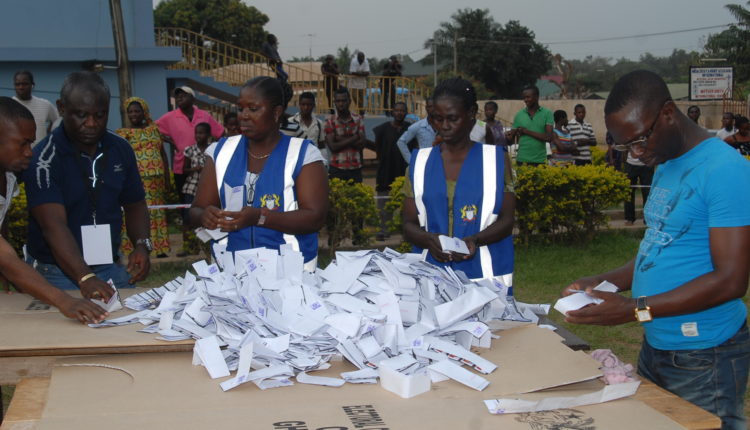Time to consider electronic voting – Short Commission tells EC
Emile Short Commission which investigated political violence in the Ayawaso West Wuogon by-election has recommended, electronic voting for future elections.
In its report, the three-member Commission urged the Electoral Commission to “explore the possibility of resorting to electronic voting or some other method which does not depend on physical ballot boxes.
The use of the ballot boxes is as old as Ghana’s Fourth Republic which began in 1992. First opaque but now transparent, the ballot box, a symbol of democratic choice is becoming a magnet for chaos in the country’s 27-year old democracy.
The Police administration in 2012 announced, it has formed a Ballot Boxes Security Task Force to protect the transportation of the boxes to and from the polling stations.
A Daily Guide report in 2012 also records the formation of a militia group, De Eye by the former bodyguard of the then opposition New Patriotic Party (NPP) presidential candidate Nana Akufo-Addo.
That group, De Eye was formed with a vow to protect the ballot box.
The National Democratic Congress (NDC) in recent times has out-doored a “ballot box protection unit” for the 2020 general elections. The group was seen during the party’s Congress held in 2018 at the InternatuTrade Fair where new national executives were elected.
Justifying the move, the NDC National Chairman, Samuel Ofosu Ampofo, said on Asempa FM last November, “We will protect our boxes, our agents and ensure we will be at all the 29,000 polling stations nationwide to protect the ballot boxes with the ballot box processing unit to ensure nobody cheats at the polling station.”
With the Ayawaso West Wuogon by-election in the Greater Accra region turning violent, the Commission of Inquiry wants the importance of physical ballot boxes re-examined.
Electronic Voting Machines (EVMs)
Worldwide, about 20 countries use some form of electronic voting. Britain, seen as the mother of all democracies, relies on paper ballots to elect 650 MPs to the House of Commons. The US, popularly referred to as the world’s oldest democracy, on the other hand, uses a combination of direct voting machines to read the vote marked on ballot papers, as well as ballot papers.
At present, Namibia, Nepal, Armenia, Bangladesh, Bhutan, Australia, Belgium, Bulgaria, Italy, Switzerland, Canada, Mexico, Argentina, Brazil, Chile, Peru and Venezuela, besides the US, use some form of electronic voting.
In the US, direct vote-recording machines are used in 27 states, while 15 states use machines with paper audit trail machines, according to two US government websites.
India also uses Electronic Voting Machines despite the opposition’s demand for a return to paper ballots and manual counting in the 2019 general elections.
A country that has successfully used EVMs on a large-scale during elections is Brazil. The fifth most populous country in the world, Brazil, started using electronic voting in the mid-1990s, according to the Brazilian government website, much for the same reasons that prompted India to switch to EVMs. These include reduction of election fraud and coercion, snatching of ballot boxes and minimizing counting anomalies.
In Africa, Namibia uses Indian EVMs. It was used in the 2014 presidential elections.


